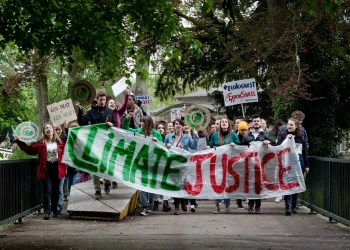In the coming two weeks, delegates from more than 200 nations will assemble at the COP27 conference to discuss the urgency of raising clean energy ambitions.
As the average global temperature has already climbed 1.2 degrees Celsius since industrialization and it’s showing no sign of slowing down, this summit will play a crucial role in addressing such issues.
Researchers, advocates, and the United Nations warned that the world is still wildly off-track to halting global warming and preventing the worst consequences of this crisis.
With global leaders gathering in Sharm el-Sheikh, Egypt, for the UN’s annual climate summit, all eyes are on our response to this challenge.
Countries are trying to come up with a way to end the use of the dirtiest fossil fuel, coal, after it’s seen a revival in some countries. Nations will also discuss funneling money to help tropical countries recover from devastating climate disasters.
One of the reasons that leaders are running out of time is that recent climate change reports show that we should stop at 1.5 degrees Celsius to keep the planet from exceeding a limit.
One report from the United Nations and the World Meteorological Association shows that carbon and methane emissions were at record levels in 2021, and the plans countries have submitted to reduce those emissions are not enough.

The experts predict that the Earth’s temperature will go up by anywhere between 2.1 and 2.9 degrees Celsius by 2100 if the nations only focus on the current goals.
“No country is entitled to be delinquent,” US Climate Envoy John Kerry told reporters in October.
“The scientists have warned us that what’s happening now – the increased extreme heat, extreme weather, the fires, the floods, the warming of the ocean, the melting of the ice, and extraordinary effect on life from this climate crisis is going to get worse unless we address this crisis in a unified and forward-looking way.”
If drastic measures aren’t taken, the world will reach 1.5 degrees of temperature increase by 2030, which could cause unimaginable consequences. We currently rely too much on oil, gas, and coal to meet our needs.
Developed and developing countries have been debating the idea of “loss and damage” funds for years across many different conferences.
The idea of these funds is that countries who cause harm with their high emissions should pay poorer countries, which have suffered from the resulting climate disasters, to help them get back on their feet.
This approach is practical, but not every country is ready to accept it because their national interest comes in their way.
Another perspective on this issue is the clash of big economies. In the future, people will be watching to see if the US and China are able to repair a broken relationship at the summit.
The two countries announced they would work together on climate change last year, surprising the world. However, it’s only time that’ll judge their will to do so.














